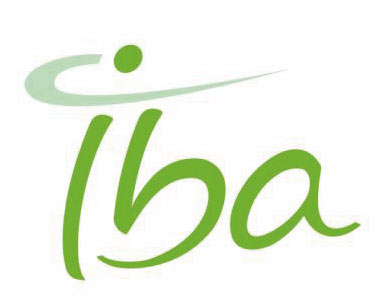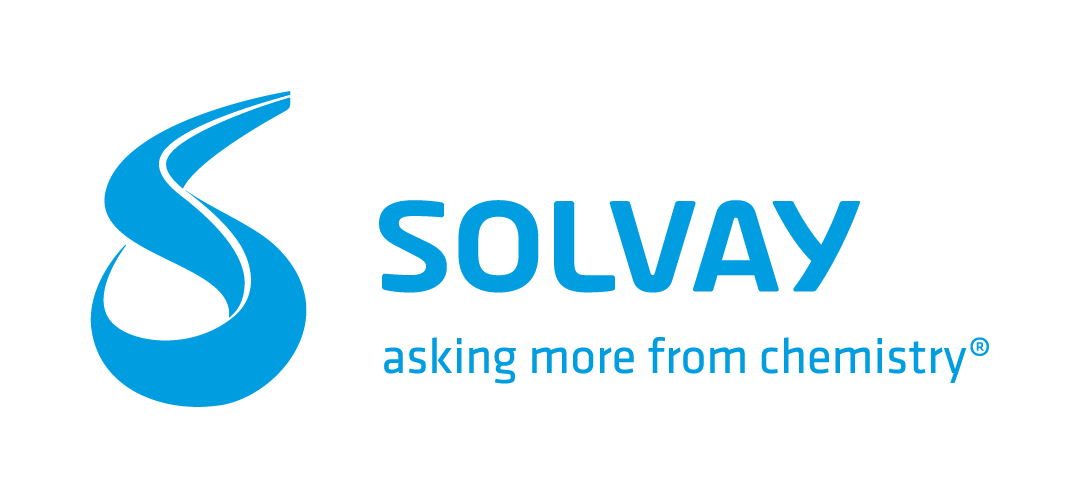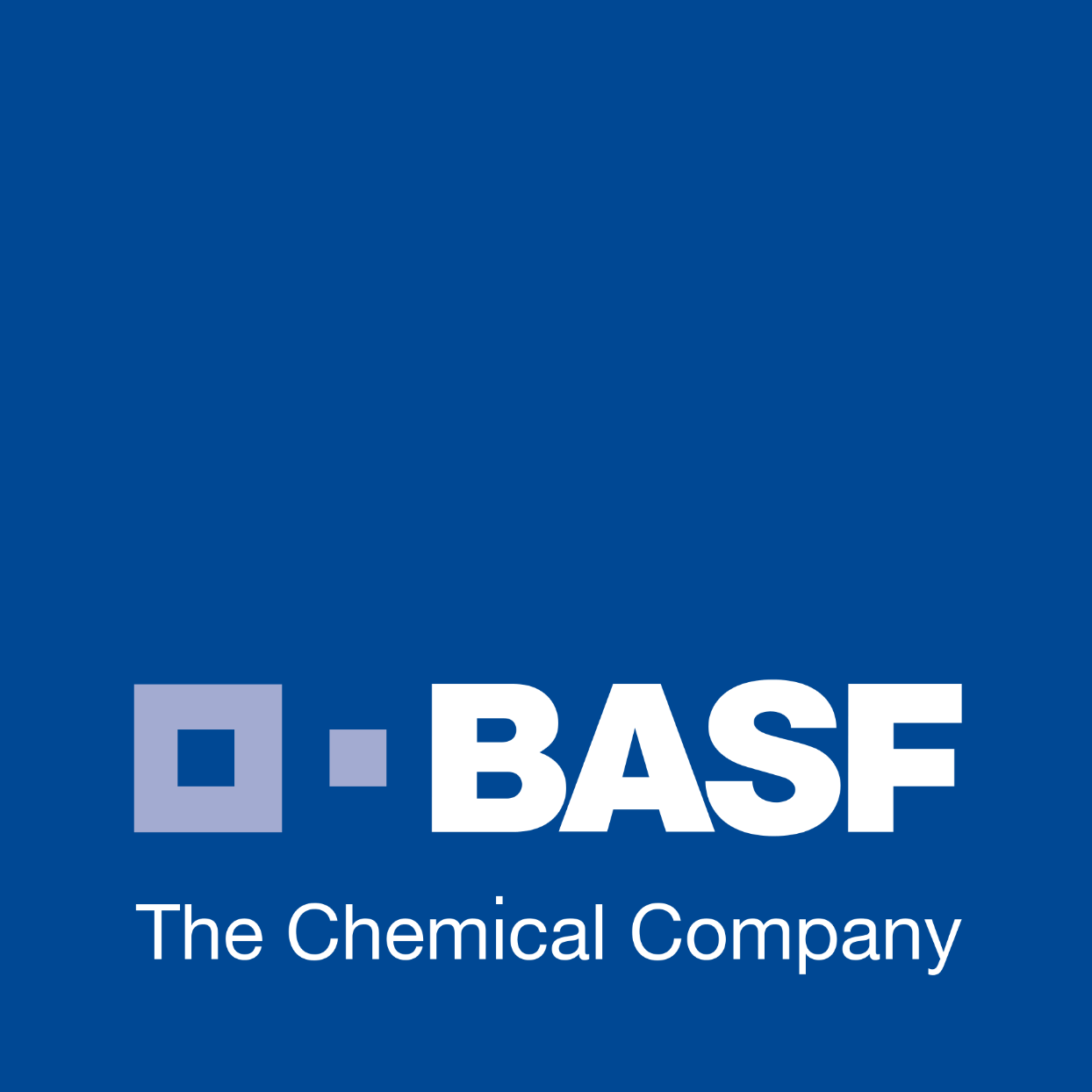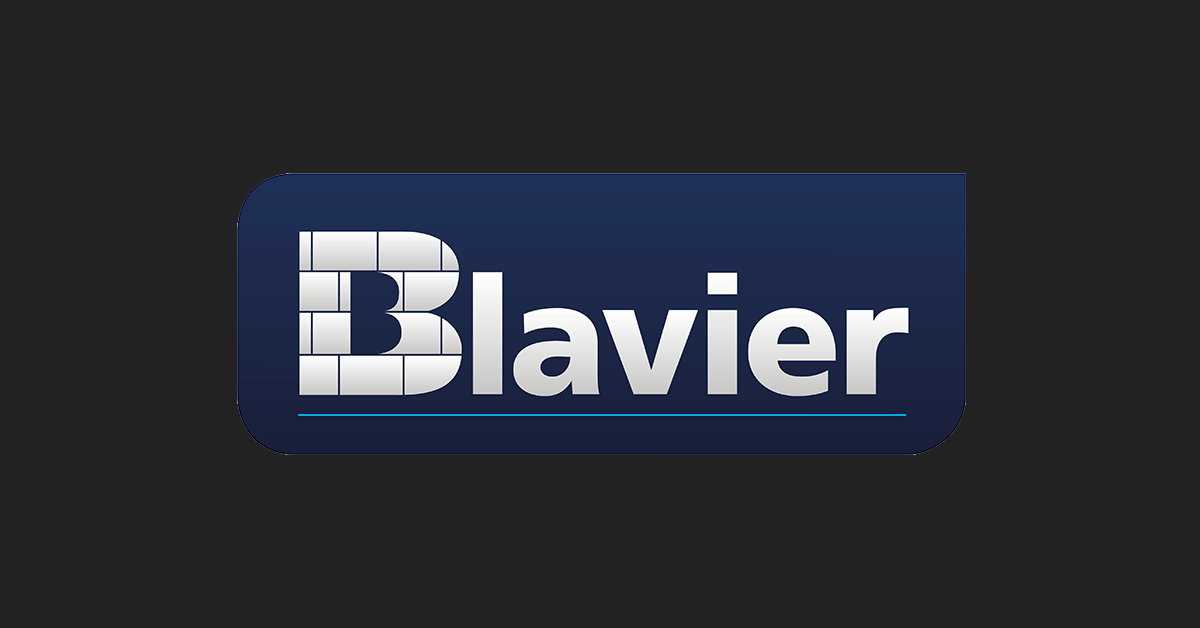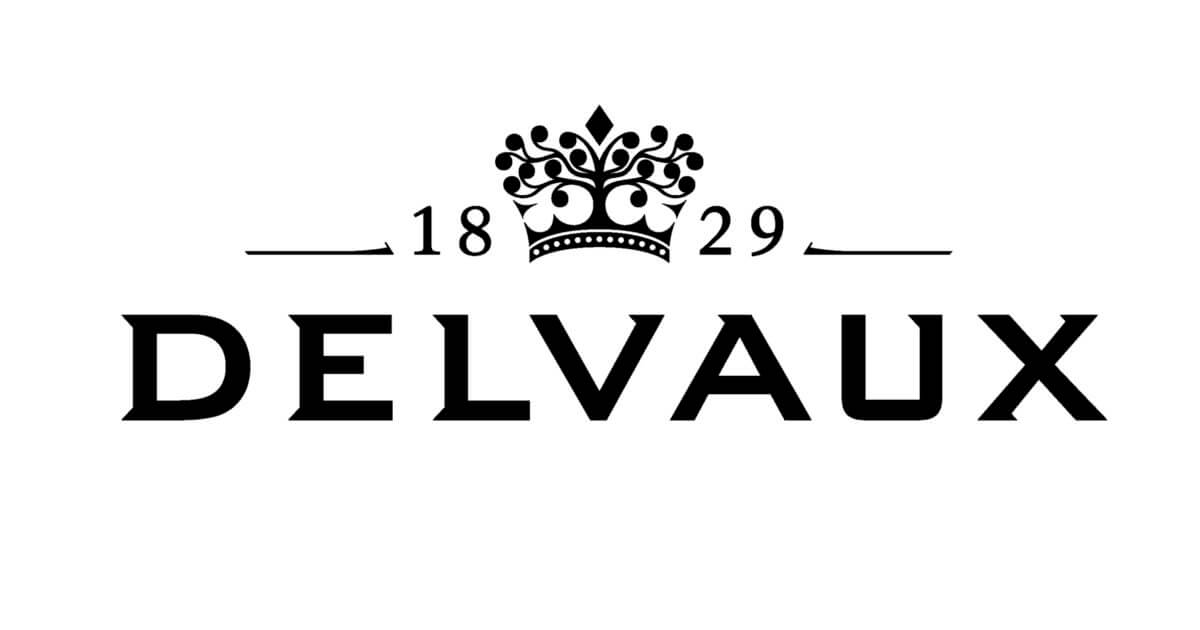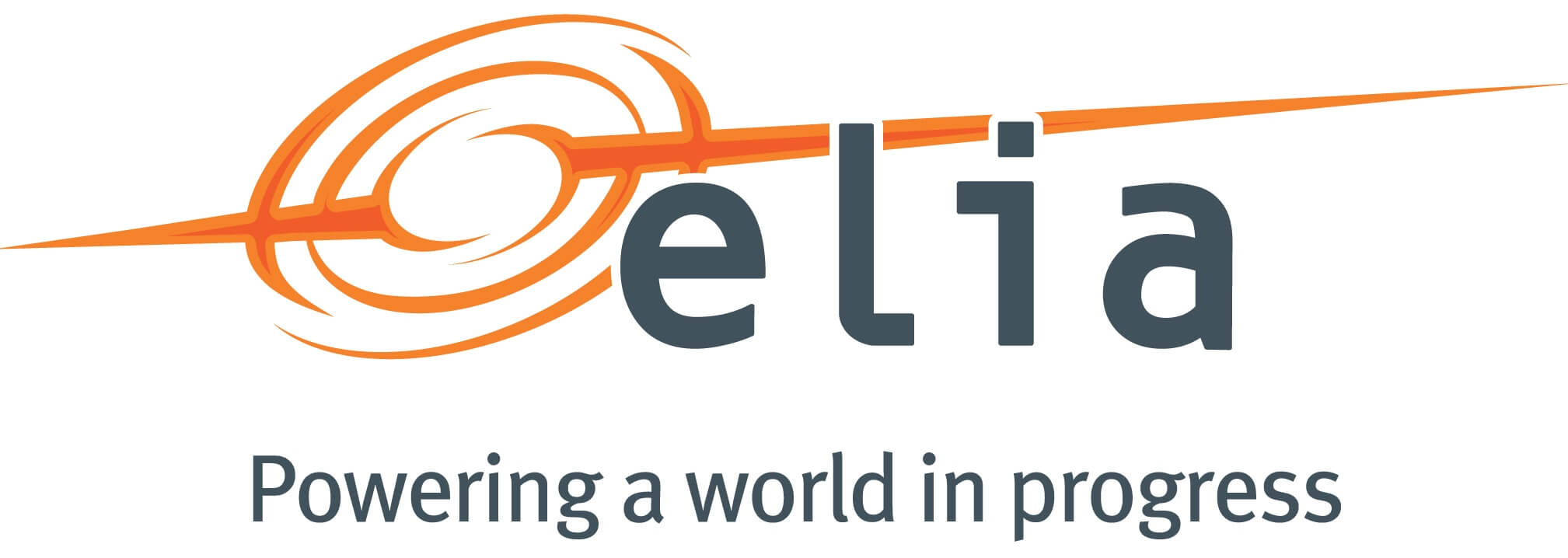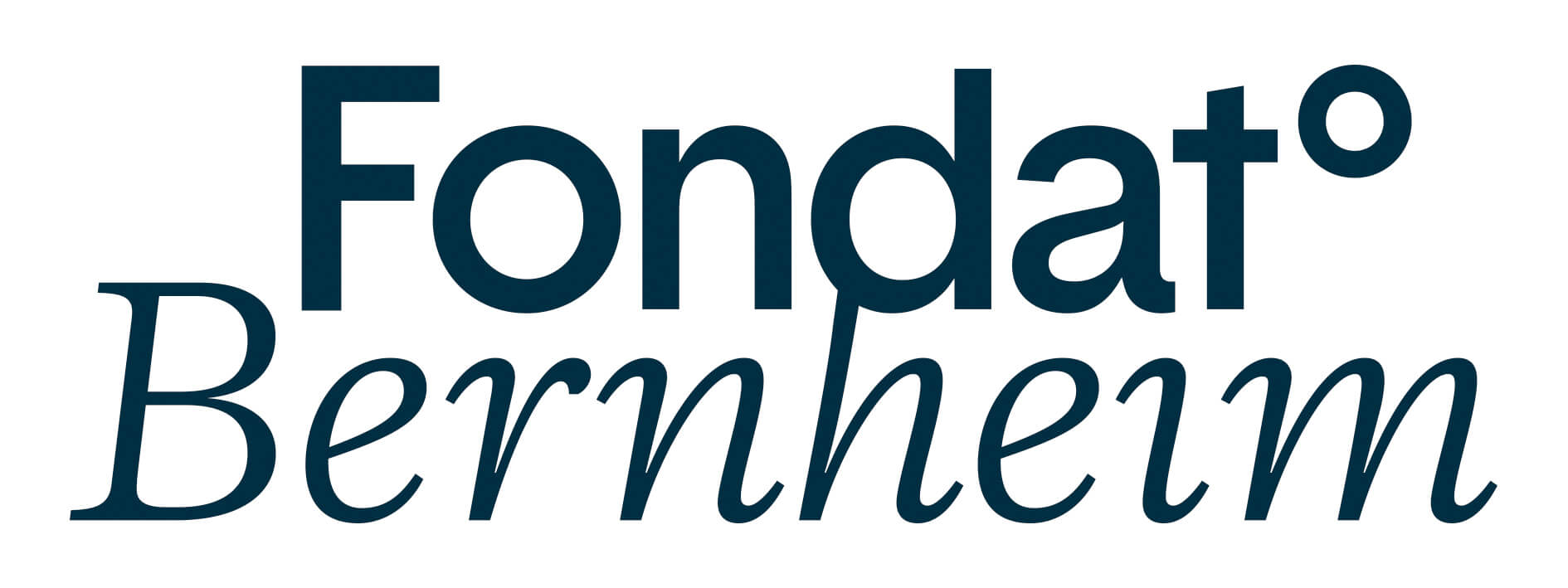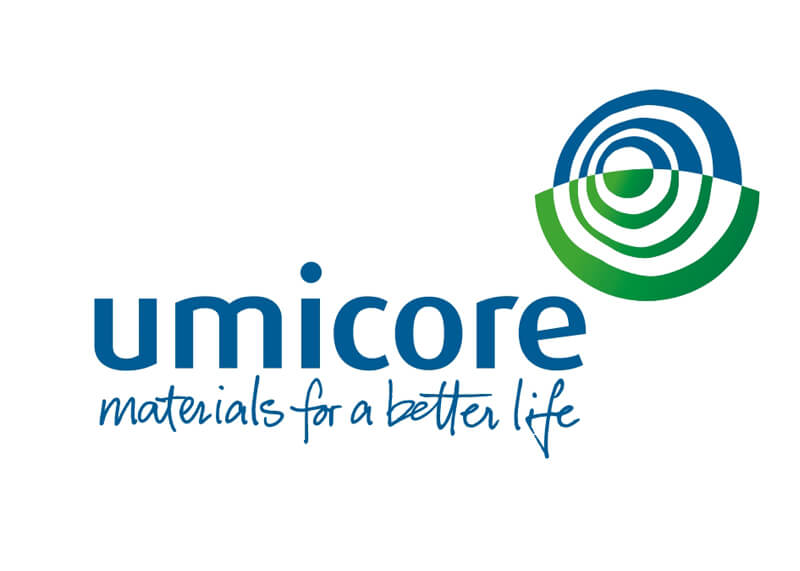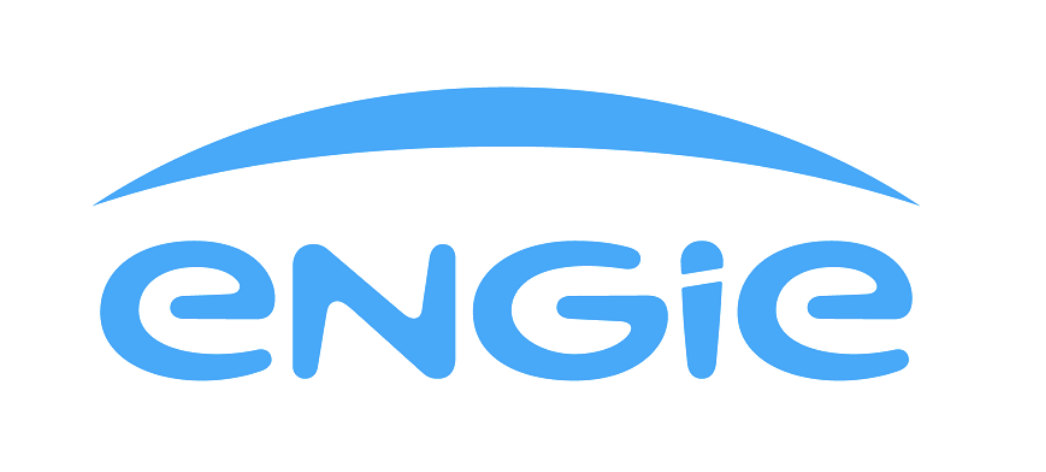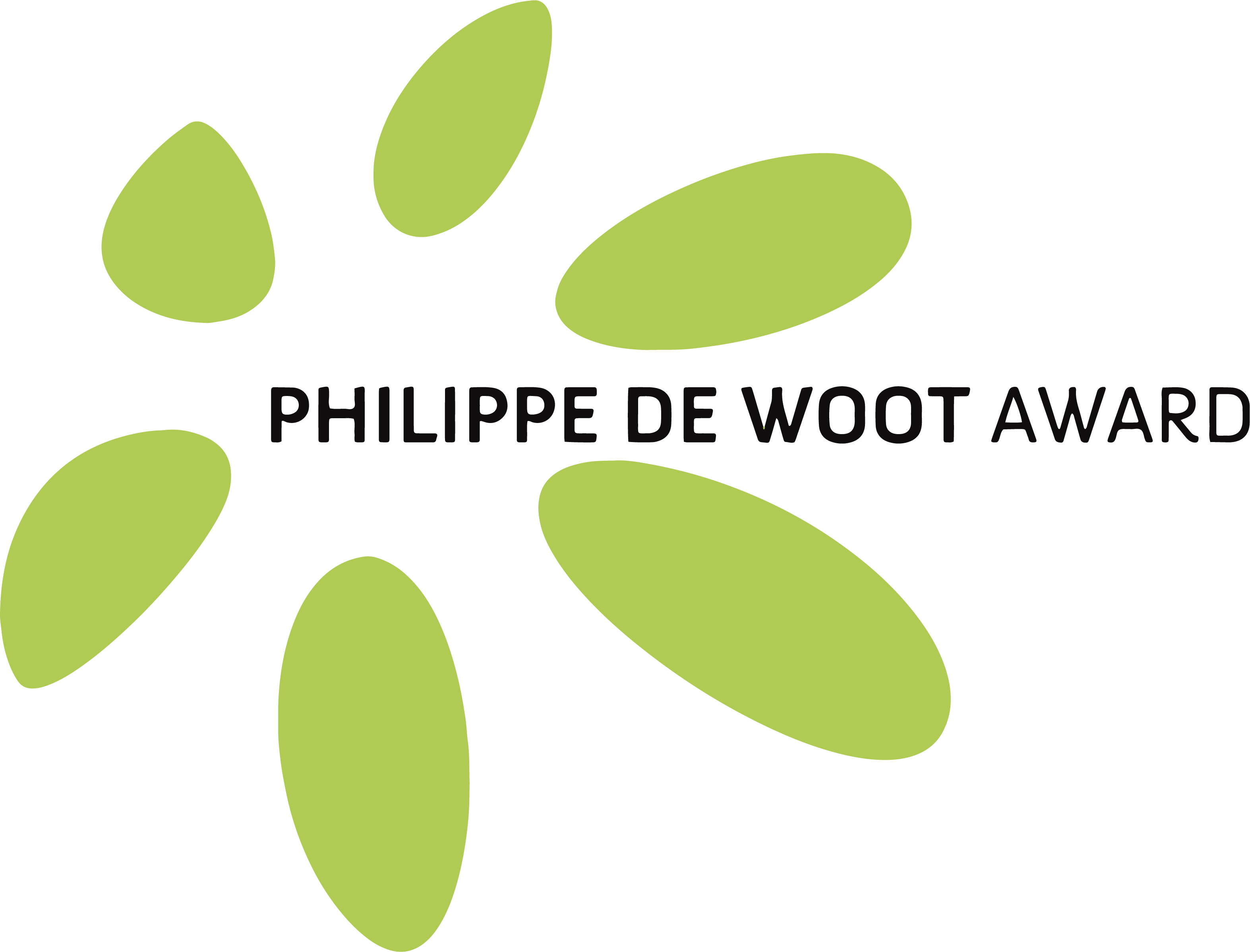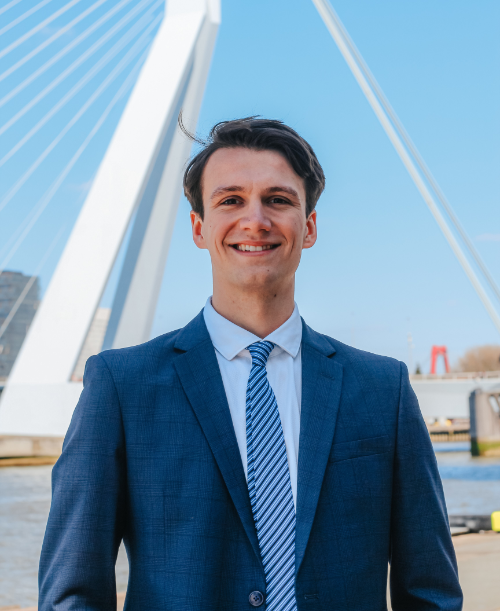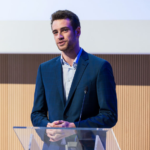Edition 2026
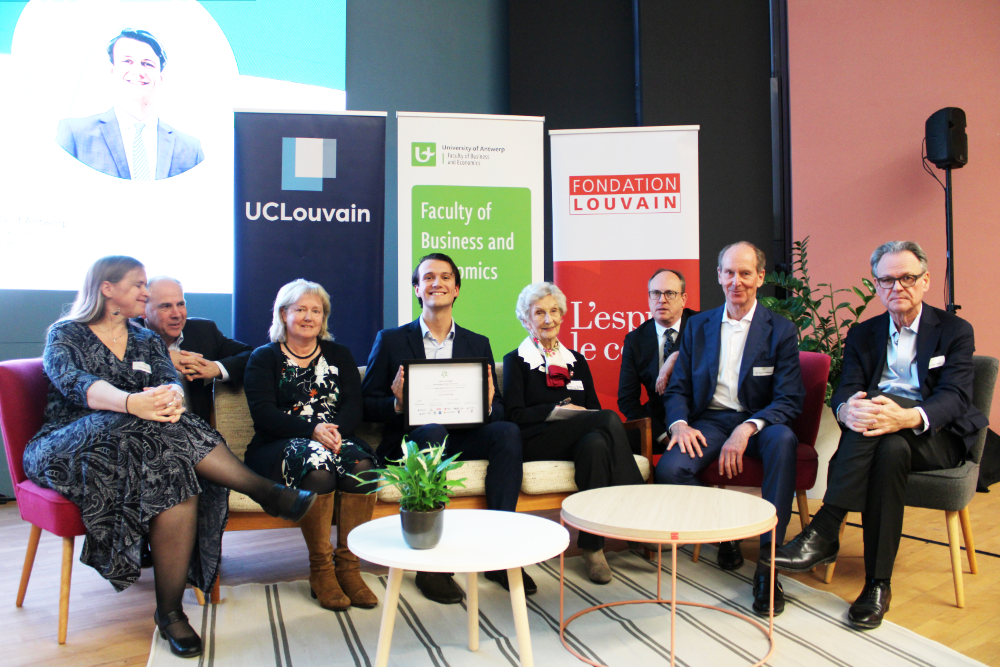
©Kathleen Andries
From the left to the right: Valérie Swaen and Luc Van Liedekerke (coordinators of the Philippe de Woot Award), Ann Jorissen (vice-dean of the Faculty of Business and Economics of University of Antwerpen), Mels Arnoldy (winner of the 2024 edition), Anne-Rose Philomène de Liedekerke (spouse of Philippe de Woot), Charles de Liedekerke (founder of the Philippe de Woot Award) and Eric Archambeau (2024 guest speaker).
To know more about the objectives of this Award and the process to submit your master thesis, click on the following button.
The 9th edition of the Philippe de Woot Award
The 2026 Philippe de Woot Award Ceremony for Best Master Thesis on Corporate Social Responsibility will take place on March 18 in Louvain-la-Neuve.
If you’ve missed the ceremony, watch the video below

A word about the hosting University
UCLouvain is a multi-site university composed of 8 campuses! Close to its students, UCLouvain actively develops fundamental and applied research, establishing connections with the socio-economic world for ever greater excellence. The 2026 edition of the Philippe the Woot Award will take place in March on the Louvain-la-Neuve campus.
Situated 30 km from Brussels in the heart of the Brabant Wallon Province, the UCLouvain campus in Louvain-la-Neuve hosts over 20,000 students across its 11 faculties. Founded by the university in 1971, the city is one of Europe’s newest. Nestled in the countryside, it provides an outstanding quality of life for students, researchers, professors, and residents. The city features museums, cinemas, theatres, concert and exhibition halls, a swimming pool and fitness center, restaurants, cafés, shops, and green spaces, all contributing to its renowned lively and friendly atmosphere.
The entirely pedestrianized city center allows easy access to all academic buildings and fosters frequent interactions among students, researchers, professors, and residents, creating a unique social, cultural, and economic fabric.

© UCLouvain / Globalview – Simon Schmitt

Organization and nominees
A total of 41 master’s theses were submitted from 6 different countries.
They will be evaluated in two stages: first by the academic jury, then by the stakeholder jury.
So far, the academic jury has shortlisted 7 master’s theses, which will now be assessed by the stakeholder jury
- Michael AßLÄNDER– TU Dresden, Germany
- Ina AUST – UCLouvain – LSM, Belgium
- Karine CHARRY – UCLouvain – LSM, Belgium
- Sabrina COURTOIS – UCLouvain – LSM, Belgium
- Saskia CRUCKE – UGent, Belgium
- Kenneth DE ROECK – SKEMA, France
- Yves DE RONGÉ – UCLouvain (Emeritus) – LSM, Belgium
- Catherine D’HONDT – UCLouvain – LSM, Belgium
- Frédéric DUFAYS – KU Leuven, Belgium
- Christel DUMAS – ICHEC Brussels Management School, Belgium
- Manal EL ABBOUBI – Mohamed V University, Morocco
- Cécile GODFROID – UMons, Belgium
- Tobias GOSSLING – Kedge Business School, France
- Corentin HERICHER – UCLouvain – LSM, Belgium
- Julie HERMANS – UCLouvain – LSM, Belgium
- Amélie JACQUEMIN – UCLouvain – LSM, Belgium
- Catherine JANSSEN – ULB-Solvay, Belgium
- Albert LÖHR – TU Dresden (Emeritus) – Germany
- Céline LOUCHE – University of Waikato, New Zealand
- Rudy MERTENS – Antwerp University, Belgium
- Lars MORATIS – Antwerp Management School, Belgium
- Mikael PETITJEAN – UCLouvain – LSM, Belgium
- Sophie PONDEVILLE – UNamur, Belgium
- Maria ROSZKOWSKA-MENKES – UCLouvain – LSM, Belgium
- Prabal SHRESTHA – UCLouvain – CORE, Belgium
- Valérie SWAEN – LSM – UCLouvain/IESEG Management School, Belgium/France
- Luc VAN LIEDEKERKE – Antwerp University, Belgium
- Joëlle VANHAMME – EDHEC Business School, France
- Bert WILLEMS – UCLouvain – CORE, Belgium
- Magdalena ANDREJCZUK – MBank (Poland)
- Valérie ARNOLD – Independent advisor to PwC Global
- Michel BANDE – WWF, SEII, CSR Europe
- Macha BERTRAND – ALUNA – Freelance
- Charles DE LIEDEKERKE – Family member of the Award founders
- Serge DE BACKER – CAP Source
- Marie d’HUART – CAP Source
- Marcin GRZYBEK – Bank Gospodarstwa Krajowego (Poland)
- Gaëlle JANSSENS – ECAM
- Dirk LE ROY – Sustenuto
- Lettemieke MULDER – Momentum Facilitation
- Jan NOTERDAEME – CSR Europe
- Thomas PEIGNOIS – Novadip
- Aleksandra STANEK-KOWALCZYK – EY, SREPORT
- Anne-Laure VAN DER WIELEN – 2030 | CEO Alliance for Sustainability
- Philippe WEILER – FairTrade Belgium

The nominees
Among the submissions, the academic jury selected the 7 following nominees.
Approach to the economic viability of small-scale organic market gardening: analysis of ten market gardeners in the eastern part of the province of Liège.
Julien CHOUAK (HEC Liège – University of Liège, Belgium)
Small-scale organic market gardening is challenging the conventional agricultural system by pursuing social and environmental objecbves, placing the human and nature at the heart of their projects, rather than the market logic of profit maximisation. Moreover, these food producers are key to achieving the reterritorialization of food production, that is crucial to building more resilient food networks and food security. However, the economic viability of those market gardeners remains problematic as they often face a significant workload, low to inexistant remuneration and financial hardship. By building, first, on an extensive literature review and, second, on ten semi-directed interviews with small-scale market gardeners coupled with the collection of their accounting documents, this study helps to understand how their economic viability can be improved through multiple strategies, including increased production from cultivated land, added value from production and added value from the farm through buying-reselling, as well as improved management practices. Further, it also points out the need for increased financial and political support from authorities. Finally, this study lays the ground for further research as it contributes to the existing literature by providing a holistic analysis of the economic viability of small-scale market gardeners and a mind map presentng several strategies that can be implemented.
From Hierarchy to Participation: A Typology and Comparative Study of Law Firm Governance Models.
Marianig Derenne (HEC Liège – University of Liège, Belgium)
This thesis examines governance models within law firms, highlighting their diversity, internal tensions, and ongoing transformations. Based on a qualitative study conducted among medium-sized Belgian firms, it seeks to understand how these organizations actually operate on a daily basis, beyond formal models or official discourses.
The research explores how strategic and managerial decisions are made, how power is distributed between partners, associates, and trainees, and to what extent principles such as participation, autonomy, transparency, or control shape or transform traditional forms of governance.
By connecting empirical findings with academic literature, the study reveals both the cooperative dynamics and the tensions that characterize law firms: between centralization and autonomy, hierarchical traditions and participatory approaches, economic imperatives and professional values.
The overall aim is to provide a deeper understanding of the mechanisms of governance at work within law firms, while also questioning their ability to adapt to the transformations of the profession and the emerging organizational expectations.
Legumes on the Menu: Exploring Consumer Behaviour for a Plant-Based Future.
Jonas SANDHOLT FELD & Olivia Josephine Doré VINZENTS (Copenhagen Business School – Danmark)
Despite national dietary guidelines recommending 100 grams of legumes daily, Danish consumption remains low. Whilst consumers are aware of the nutritional and environmental benefits of legumes, cultural acceptance and practical knowledge remain too limited to drive meaningful change. This thesis demonstrates that targeted strategies, such as QR-linked canteen recipes, neutral naming of dishes, and ready-to-eat options, can reposition legumes from a niche product to a mainstream dietary component. Applying the COM-B model of behaviour change alongside a social constructivist perspective, the study uses a triangulated research design: literature review, qualitative interviews, a consumer survey (N = 219), and expert insights. Findings show that while awareness is relatively high, deeper cultural and psychological factors inhibit adoption. By segmenting consumers into three groups; health-conscious, practical, and sceptical, the thesis highlights the need for tailored interventions. The study contributes to the literature on sustainable food transitions by offering actionable recommendations to policymakers, food service providers and marketers.
Its insights extend beyond Denmark, holding relevance for broader European efforts to embed legumes into everyday diets and accelerate sustainable dietary change.
CEO Narcissism and Corporate Irresponsibility: The Moderating Role of Power Centralization.
Jules MOSSAY (UCLouvain – Louvain School of Management – Belgium)
This thesis examines how CEO narcissism affects corporate social irresponsibility (CSI) and how internal governance mechanisms, specifically CEO duality and CSR committees, moderate this relationship. Grounded in upper echelons and behavioral governance theories, the study relies on a quantitative analysis of 270 firm year observations from 54 European companies in environmentally sensitive industries between 2019 and 2023. CEO narcissism is measured through linguistic analysis of shareholder letters, while CSI is proxied by ESG controversies scores.
Results reveal no straightforward linear relationship between CEO narcissism and CSI. Instead, an inverted U-shaped pattern emerges: moderate narcissism is linked to more controversies, whereas low and high levels correspond to fewer. Unexpectedly, CEO duality mitigates rather than amplifies this effect, and CSR committees show no significant moderating role.
These findings highlight the nuanced and context dependent nature of executive influence, questioning assumptions about power centralization and the effectiveness of symbolic governance mechanisms.
Stakeholder Engagement in Double Materiality Assessment: Decision Making Under Heuristic and Self-Reinforcing Effect.
Nabilah PUTRI (Wageningen University and Research, the Nederlands)
The introduction of the Corporate Sustainability Reporting Directive (CSRD) marks a turning point in corporate accountability, placing the double materiality assessment (DMA) at the heart of sustainability reporting. Double materiality requires firms to disclose both how sustainability issues affect their financial performance and how their activities impact society and the environment. A key component of DMA is stakeholder engagement, which enhances the relevance and legitimacy of reported sustainability issues. However, due to its complex and resource-intensive nature, firms often rely on heuristics, simplified decision-making rules, to guide the engagement process. While heuristics increase efficiency, they risk introducing bias and reinforcing existing practices.
This thesis explores how heuristics in stakeholder engagement relate to self-reinforcing effects in sustainability reporting. Based on in-depth interviews with 23 sustainability professionals, the study provides empirical evidence on four key heuristic dimensions: selection, procedural, temporal, and prioritization, and identifies nine rules that firms commonly apply. These rules shape decisions on whom to engage, when to involve them, and whose input is prioritized in the assessment process.
The research also reveals three self-reinforcing mechanisms: coordination, complementarity, and learning, and one external mechanism, adaptive expectations. Importantly, it shows that reinforcing mechanisms are not purely internal but also shaped by systemic influences. Furthermore, the research distinguishes between reinforced heuristics (shaped by past practices) and adaptive heuristics (emerging from reflective, context-specific decisions), demonstrating that the relationship between heuristics and reinforcing mechanisms is bidirectional rather than linear.
By offering empirical insights into this interplay, the thesis highlights how firms navigate stakeholder engagement under regulatory pressure, and how these practices may unintentionally constrain the transformative potential of DMA. It concludes with recommendations for more inclusive and effective stakeholder engagement in the CSRD framework.
Towards Sustainable IT for Organizations - A guide to understanding, measuring and reducing the environmental impacts of IT.
Rodrigue DEGHORAIN (UMons – Belgium)
Given the current biogeophysical state of the Earth system and the alarming overshoot of several planetary boundaries, this thesis examines the environmental impacts of digital technologies, which have become central to our societies while exerting growing pressures on ecosystems. Organizations, as both providers and users of IT services, play a key role in understanding, measuring, and reducing these impacts.
This work mobilizes Life Cycle Assessment (LCA) through a multicriteria approach, covering the full range of environmental dimensions (climate, resources, biodiversity, toxicity, etc.). It relies on the Organizational Life Cycle Assessment (O-LCA), a framework promoted by the United Nations, and proposes a first experiment applied to an IT department. This original case study highlights the contributions, limitations, and points of attention of O-LCA in the digital context.
Beyond the diagnostic, two concrete outputs were developed : a positioning diagram of evaluation methods and tools, enabling organizations to select those best suited to their objectives and resources, and a structured set of operational actions with quantified targets, designed to support the transformation of a diagnostic into an actionable roadmap.
The approach follows a research-action logic, combining bibliographic work, modeling, and exchanges with socioeconomic stakeholders (Infrabel, ISIT, Materia Nova, the French Ministry of Ecological Transition, etc.), ensuring that the proposed tools are anchored in the operational reality of organizations.
Ultimately, this thesis contributes to equipping organizations with both scientific and practical tools to engage in a responsible digital transition, at once strategic and operational, and aligned with the socio-economic challenges on the ground.
Decarbonising Express Parcel Logistics in Europe: High-Speed Rail as a Sustainable Alternative to Air Transport.
Maria BELPAIRE (Solvay Brussels School of Economics & Management – Belgium)
Express (D+1) parcel delivery in Europe is dominated by air freight, which, while moving only 0.5% of volumes, accounts for around 15% of transport emissions. Decarbonisation via Sustainable Aviation Fuels is progressing too slowly, making alternatives necessary. This thesis investigates a full modal shift from air to high-speed rail (HSR) powered by clean electricity.
A network analysis shows that the European HSR system already covers more than half of the infrastructure needed, with key missing links such as Spain–France and Lyon–Bordeaux requiring €128 billion in investment by 2040. The proposed logistics model is based on a European Fulfilment Centre in Lyon and four Regional Fulfilment Centres in Madrid, Liverpool, Warsaw, and Sofia.
High-speed freight trains, modelled after Mercitalia Fast, could reach 78% of the European population within 27 hours (D+1). Of current air-moved express parcels, 32% could shift to rail under this model, while 6% would still require air transport if customers reject D+2 delivery.
The QGIS- and Python-based analysis indicates that transferring 1.38 billion parcels to rail could replace 220,000 flight-segments annually with 71,000 train-segments, avoiding 4.6 Mt of CO₂. The findings demonstrate that with targeted infrastructure expansion and adapted operations, HSR can form the backbone of a sustainable express parcel delivery system in Europe by 2040.

A word about the keynote speaker
Eric Archambeau

©kmeron, CCBY2.0 via Wikimedia Commons
Eric Archambeau stands as a visionary entrepreneur, a pioneering impact investor and a fervent advocate for both healthy food education and regenerative agriculture. His multifaceted contributions have made a lasting impact, shaping both the business and educational spheres towards a more sustainable and socially responsible future.
2017 marked a pivotal moment in his career when he established Astanor Ventures, which later earned the esteemed status of B Corp in October 2023.
Astanor Ventures, a global impact investment fund, stands as a beacon for mission-driven entrepreneurs. Eric’s leadership has positioned the fund as the global leader to support those who offer disruptive and scalable technologies, with a fundamental commitment to placing nature at the core of a new sustainable agri-food system. Recognized as one of the pioneering figures in impact investing in Europe, Eric’s influence extends beyond the creation of Astanor Ventures.
After a career in Silicon Valley spanning more than twenty years throughout the 1980s, 90s and early 2000s, where he held numerous positions as an engineer, manager then CEO of several software companies he co-founded, he finally became a venture capitalist at Benchmark Capital. Eric then moved to London where as managing partner of several venture capital firms, he built an enviable track record by investing early in companies such as Betfair, Spotify, Xing or Onfido. In parallel, Eric started to be involved in socially and environmentally impactful entrepreneurs as early as in 2003 when he co-founded Social Impact International, an accelerator for social entrepreneurs with activities in India, Central Europe, Central America and the Pacific Islands, providing invaluable support to numerous high-impact organizations. His commitment to fostering positive change is further exemplified through his role as the global chairman of the Jamie Oliver Food Foundation.
Beyond the realms of business, Eric Archambeau has shared his expertise as an educator. He has contributed to the academic landscape by teaching at INSEAD, where he played a pivotal role in establishing the department of social entrepreneurship. He is also the author of a book, ‘Costing the Earth: How to fix finance to save the Planet”. In this book, Eric argues that the only viable and sustainable way to achieve net-zero is to adopt the model pioneered by impact investors, which takes the three Ps – profit, people and the planet – into account when valuing a company or tracking its performance without waiting for an overhaul of the international accounting system that will only come in the next decade. Only when those environmental and social costs , currently ignored, are being mandated to be taken into account then will business leaders all over the world be incentivized to place sustainability and the regeneration of the planet’s resources at the heart of their operations and decision-making.
Are you interested in the Philippe de Woot Award?
The next edition will take place in March 2026 in Louvain-la-Neuve
Any graduate student from a university or business school with a Master’s degree whose dissertation deals with CSR or sustainable development defended during the academic years 2023-2024 & 2024-2025 can apply for this award.

Our partners
Academic partners
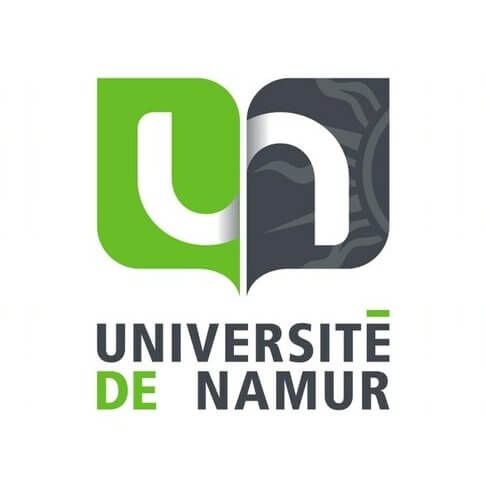


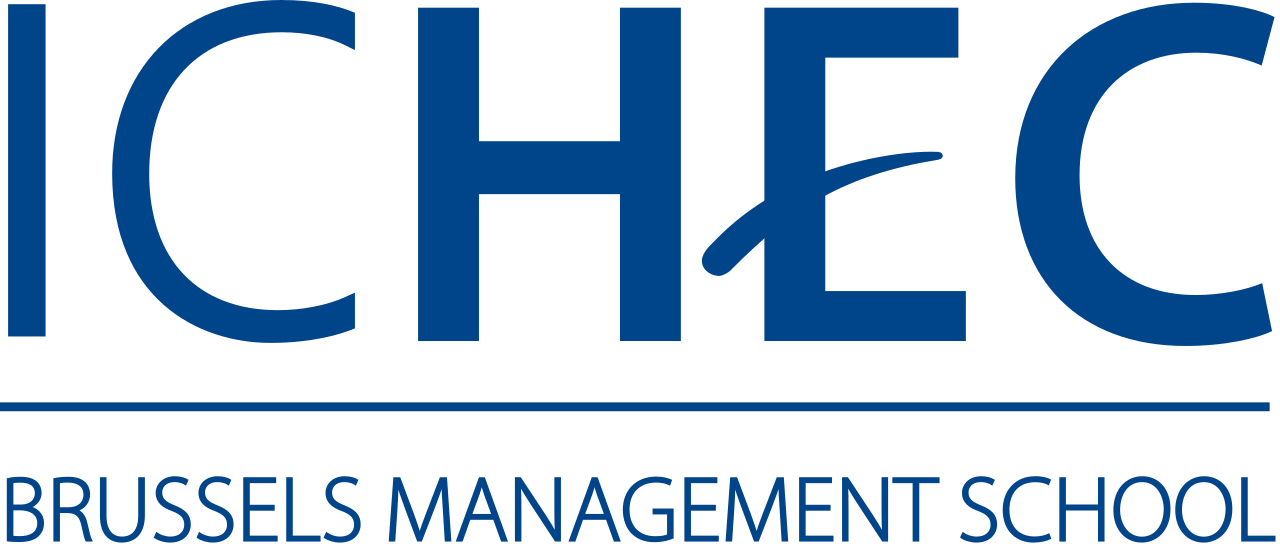


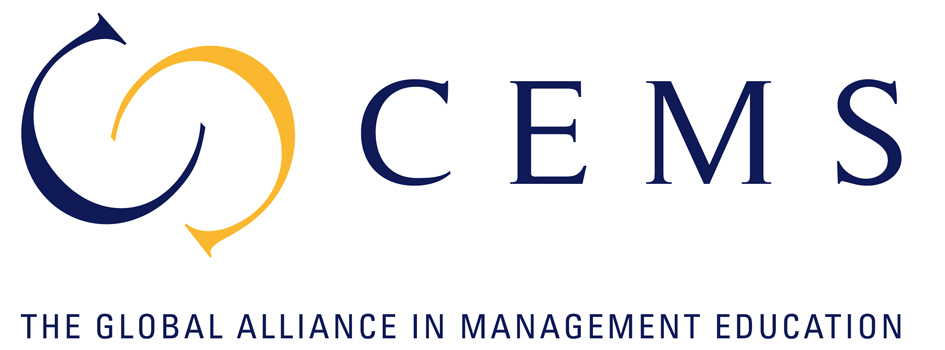
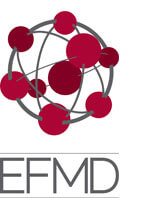
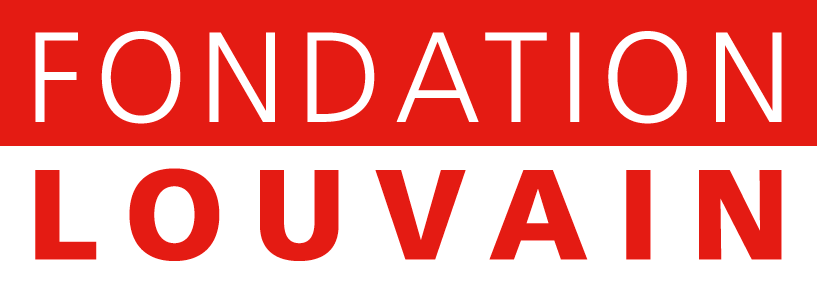

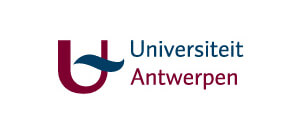
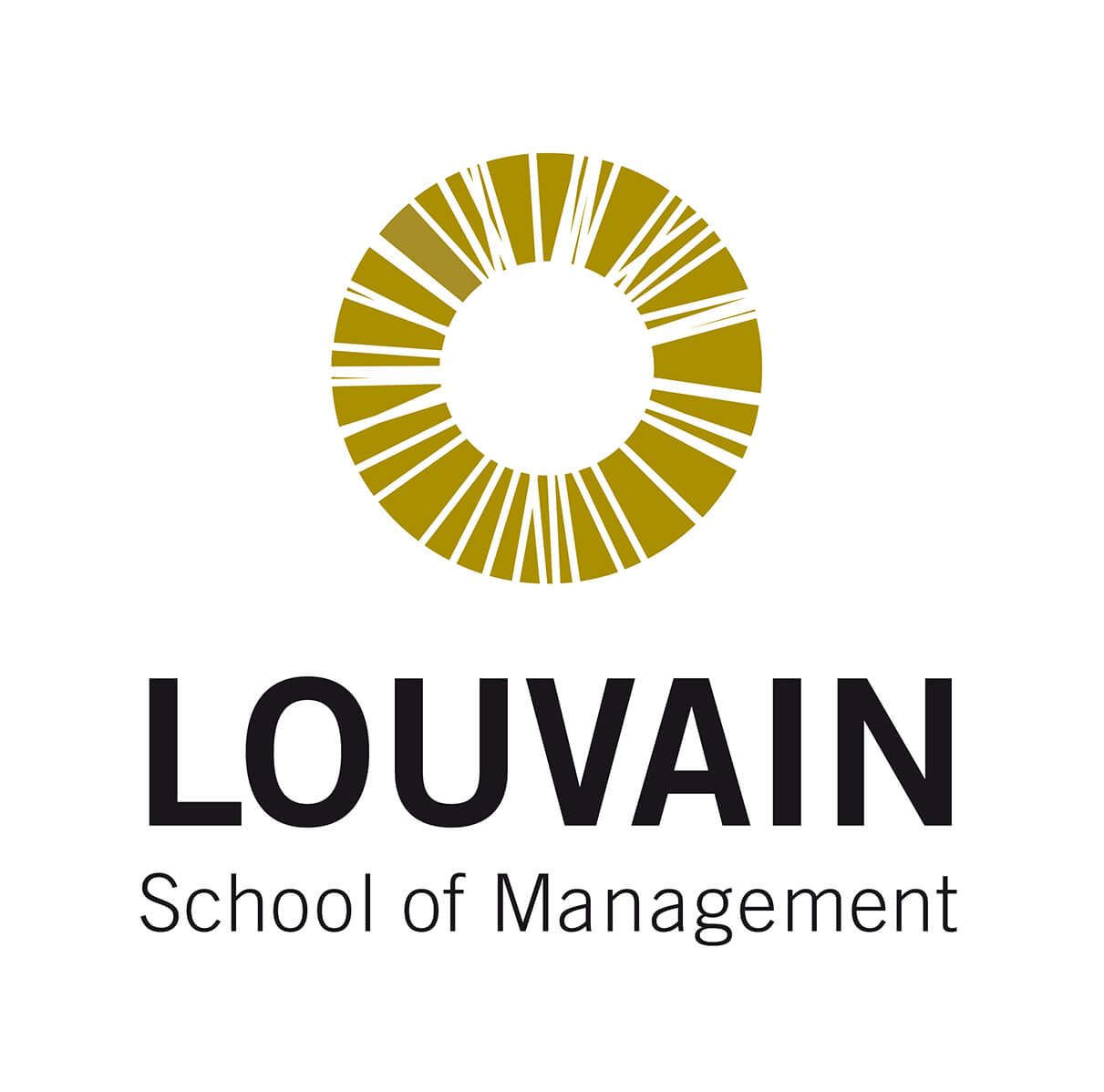

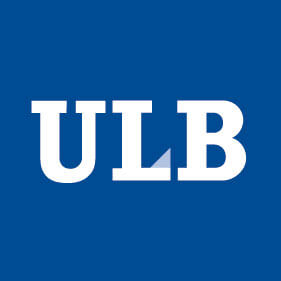


Our partners
Financial partners

